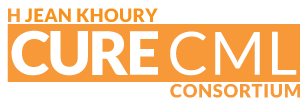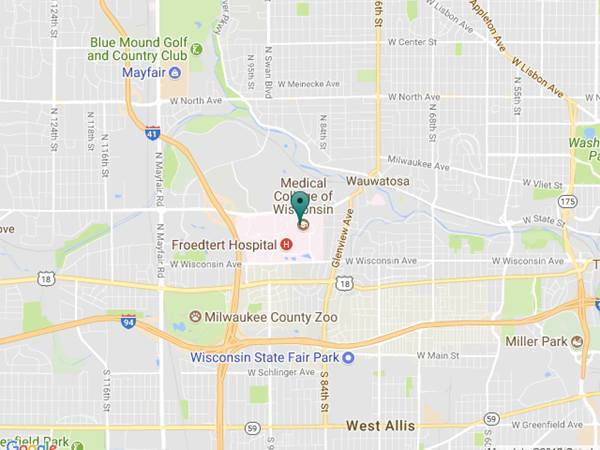H. Jean Khoury Cure CML Consortium
About Us
The H. Jean Khoury Cure CML Consortium was established in 2016 and is a collaborative effort of physicians and researchers at 23 academic medical centers committed to CML research and improving patient care and quality of life.


 “Galvanized by the spectacular collaboration created by the LAST study, the creation of a CML consortium was simply the next logical thing to do.”
“Galvanized by the spectacular collaboration created by the LAST study, the creation of a CML consortium was simply the next logical thing to do.”
- The late H. Jean Khoury, MD, FACP Winship Cancer Institute of Emory University
Mission
Members
Current Studies
Treatment Free Remission After Combination Therapy With Ruxolitinib Plus Tyrosine Kinase Inhibitors
The purpose of HJKC3-0002 is to determine if adding ruxolitinib (a pill provided by the study) to your TKI for 1 year will lead to a treatment-free remission. We will monitor your CML with PCR testing.
Treatment Free Remission After Combination Therapy With Asciminib
The purpose of HJKC3-0003 is to determine if adding asciminib (a pill provided by the study) to your TKI for 1 year will lead to a treatment-free remission. We will monitor your CML with PCR testing.
Asciminib as Initial Therapy for Patients With Chronic Myeloid Leukemia in Chronic Phase
The purpose of HJKC3-0004 is to determine whether using asciminib in newly diagnosed CML patients is safe and effective. We will monitor your CML with PCR testing.
H. Jean Khoury Cure CML Consortium (HJKC3) Registry
The purpose of HJKC3-0005 is to establish a clinical outcomes and tissue bank registry for patients with CML. With seed funding from the Medical College of Wisconsin, the infrastructure for this registry was established and patient data is being entered from multiple sites across the country. Having an established CML registry will lead to better understanding of CML.
Completed Studies
Highlights of Recent Updates in CML Impact on Practice
Professor Jane Apperley from Imperial College presents at the 2025 European LeukemiaNet (ELN) meeting on the updated recommendations for managing chronic myeloid leukemia (CML). She outlines the latest guidance on diagnosis, molecular monitoring, and treatment selection, highlighting the evidence-based use of tyrosine kinase inhibitors (TKIs) and approaches to managing treatment resistance or intolerance. The presentation also addresses criteria for treatment-free remission, the importance of tailoring therapy to individual patient factors and comorbidities, and how these updates reflect current research and expert consensus aimed at improving outcomes for patients with CML worldwide.
ASCO24 Direct Highlights | Jorge Cortes, MD
Dr. Jorge Cortes from the Georgia Cancer Center summarizes key findings from the 2024 ASCO meeting. He highlights a study on Aiminib as a frontline treatment for chronic myeloid leukemia (CML), which showed promising efficacy and a favorable safety profile compared to standard therapies, potentially advancing CML treatment. He also discusses a retrospective analysis of a condensed Venetoclax-Azacitidine regimen for acute myeloid leukemia (AML), which reduced early mortality and transfusion needs for certain patients, offering a safer alternative for those unfit for intensive therapy.Lessons in Blood Cancer: How Far We Have Come CML
Dr. Jay Yang discusses significant advancements in the treatment of chronic myeloid leukemia (CML). He highlights the evolution of therapies, particularly the development and impact of tyrosine kinase inhibitors (TKIs), which have transformed CML from a once-fatal disease into a manageable chronic condition. Dr. Yang also addresses ongoing research efforts aimed at improving patient outcomes and the potential for future therapies to further enhance the quality of life for individuals with CML. This video is provided by the American Society of Clinical Oncology (ASCO) as part of their educational series on blood cancers.CML Resources

-
iCMLf
Learn about the iCMLf -
Leukemia & Lymphoma Society
Learn about the LLS
Contact Us
Mailing Address
Medical College of Wisconsin
8701 Watertown Plank Rd.
Milwaukee, WI 53226


